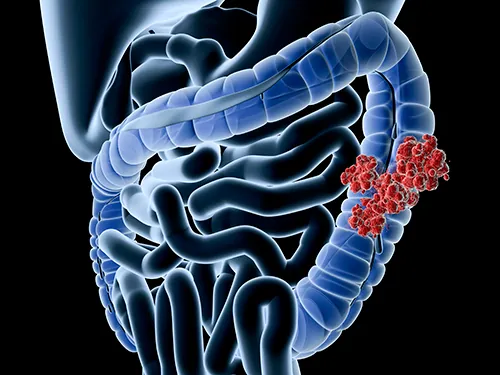
Shocking Findings: Personalized Risk Messages Fail to Boost Colorectal Cancer Screening Rates!
2025-09-02
Author: Nur
In a groundbreaking clinical trial, researchers have discovered that providing personalized risk information to U.S. patients and healthcare providers does not enhance the uptake of colorectal cancer (CRC) screenings. This revelation has left many in the medical community stunned.
The study, published in the Annals of Internal Medicine, specifically examined the effectiveness of decision aids and provider notifications that communicate individual risks associated with advanced colorectal neoplasia (ACN)—which can lead to colorectal cancer or precancerous conditions. Surprisingly, these personalized interventions did not notably impact either the screening rates or the completion of tests.
However, the researchers noted an intriguing twist: one health system did see an increased completion rate for stool testing linked to the personalized messages. The team speculates that this discrepancy may stem from differences in how providers embraced stool testing or the efficiency of the systems used to deliver and record results.
Colorectal cancer remains a top killer, claiming nearly 55,000 lives in the U.S. every year. Despite available screening methods like colonoscopies, annual fecal immunochemical testing (FIT), and multitarget stool DNA tests, less than 60% of eligible adults are up to date with screenings.
The promise of precision prevention in health could revolutionize how patients perceive screening options. Tailoring information about their risk of ACN might help guide patients to choose between invasive procedures like colonoscopy and less invasive tests.
Led by Dr. Peter Schwartz from Indiana University’s Center for Bioethics, the study focused on a decision aid designed to communicate individual ACN risks based on a prediction rule developed by Thomas Imperiale. This essential rule factors in five critical variables: age, sex, smoking history, waist circumference, and family history.
For those identified at high-average risk, with a 22% chance of having an ACN, the personalized messages emphasized the necessity of undergoing a colonoscopy due to the likelihood of finding and removing these threats. Conversely, patients with lower risks of 4% or 2% received messaging that advocated for stool testing.
The comprehensive research analyzed electronic health records from a diverse group of over 1,000 average-risk patients across two health systems located in the Midwest.
Interestingly, while 39.8% of participants completed a CRC screening, the personalized interventions yielded no significant improvements in uptake. A small uptick was noted—patients whose providers sent personalized notifications had a slight increase of 5.1 percentage points in screening completion.
The effectiveness of these tailored messages varied notably across different health systems. For instance, in one system, patients who received personalized notifications achieved over double the stool testing rates compared to their counterparts receiving generic messages. Yet, paradoxically, personalized decision aids correlated with lower odds of completing colonoscopies.
These surprising results highlight the complexity of CRC screening uptake and stress the need for further studies to understand how personalized messaging can tap into its full potential.
Overall, experts caution that while these findings did not show statistically significant differences, they indicate a critical avenue for future research aimed at improving CRC screening efficacy and accessibility.


 Brasil (PT)
Brasil (PT)
 Canada (EN)
Canada (EN)
 Chile (ES)
Chile (ES)
 Česko (CS)
Česko (CS)
 대한민국 (KO)
대한민국 (KO)
 España (ES)
España (ES)
 France (FR)
France (FR)
 Hong Kong (EN)
Hong Kong (EN)
 Italia (IT)
Italia (IT)
 日本 (JA)
日本 (JA)
 Magyarország (HU)
Magyarország (HU)
 Norge (NO)
Norge (NO)
 Polska (PL)
Polska (PL)
 Schweiz (DE)
Schweiz (DE)
 Singapore (EN)
Singapore (EN)
 Sverige (SV)
Sverige (SV)
 Suomi (FI)
Suomi (FI)
 Türkiye (TR)
Türkiye (TR)
 الإمارات العربية المتحدة (AR)
الإمارات العربية المتحدة (AR)